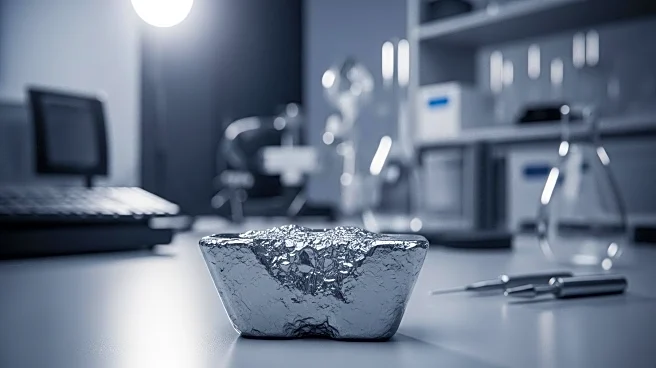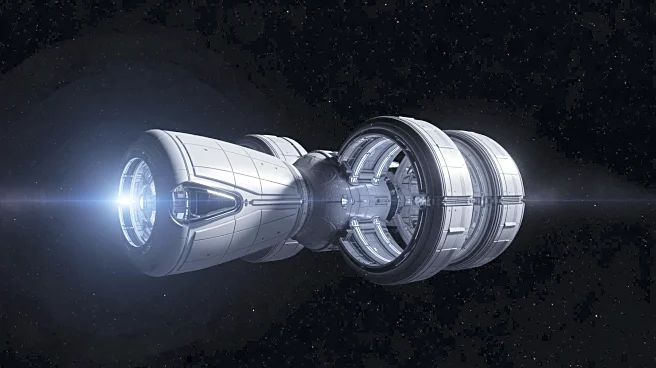What is the story about?
What's Happening?
Locksley Resources has successfully achieved a final floatation concentrate grade of 68.1% antimony from metallurgical test work programs conducted at the Desert Antimony Mine prospect within the Mojave Project in California. The company engaged metallurgical consultants, including SGS Australia and Base Metallurgical Laboratories, to conduct these tests. The concentrate returned at 95% of the technical maximum stibnite grade of 71.68%, surpassing the marketable sales requirement of a minimum 55% grade. Preliminary tests focused on rougher, regrind, and cleaner floatation aspects, demonstrating that minimal flowsheet development is necessary to maximize grade and recovery results. The floatation cleaning tests indicated total recoveries exceeding 80% through the recycling of tails.
Why It's Important?
The achievement of high-grade antimony concentrate by Locksley Resources is significant for the U.S. mineral industry, particularly in strengthening domestic supply chains for critical minerals like antimony. Antimony is used in various applications, including flame retardants and electronics, making it a valuable resource for technological and industrial sectors. The Mojave Project's potential to deliver superior feedstock could reduce reliance on foreign imports and enhance the U.S.'s strategic mineral reserves. This development aligns with broader efforts to secure domestic sources of critical minerals, which are essential for national security and economic stability.
What's Next?
Locksley Resources plans to streamline mineralogical testwork to further understand ore characteristics and expand sample collection from underground work at the Desert Antimony Mine. The company intends to produce a larger volume of antimony concentrate ahead of pilot testing, with samples sent to Rice University for testwork through the DeepSolv methodology. This expansion of the DeepSolv program aims to test a range of antimony feedstocks in different processing stages, potentially strengthening the U.S.'s domestic supply of antimony. Continued exploration and testing could lead to increased production capacity and further integration into the U.S. mineral supply chain.
Beyond the Headlines
The development of high-grade antimony concentrate by Locksley Resources may have broader implications for environmental and economic policies. As the U.S. seeks to reduce its dependency on foreign mineral imports, projects like the Mojave Project could play a crucial role in achieving sustainability goals. Additionally, the focus on minimal flowsheet development and recycling processes highlights a commitment to environmentally responsible mining practices, which could set a precedent for future mineral exploration and extraction projects.















